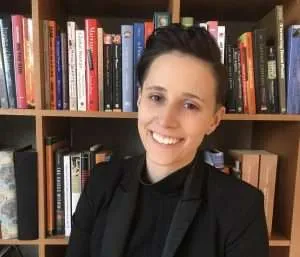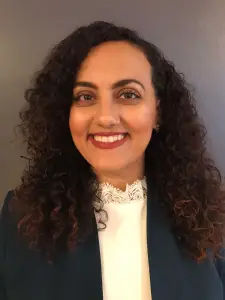Editorial Note:
This profile of Dr. Andrew C Cohen is brought to you through a joint collaboration between Applied Worldwide and the Association for Applied and Clinical Sociology (AACS). Thank you to AACS and all those who made valuable contributions to the Profiles in Applied & Clinical Sociology series.
This profile is presented with the intentions of: 1) providing students with examples of applied sociology, 2) providing market value to sociological skills and services, and 3) promoting the work of individual sociological practitioners and organizations. Learn more about the Association for Applied and Clinical Sociology at AACSNet.Net.
Andrew C Cohen, PhD
Andrew Cohen’s applied sociology journey began at Fontbonne University where he earned his B.A. in Applied Sociology and Advertising in 2011. He later went on to earn his M.A. and then Ph.D. in Sociology from Yale University in 2017. At the time of his interview, Dr. Cohen was working for Phenomenon—an innovative advertising agency based in Los Angeles, CA—where he used his sociological expertise to offer services such as marketing and brand transformation, and creative and design services.
When we asked Dr. Cohen about future employment potential for sociologists at Phenomenon, he specified that “the ability to distill insights from qualitative and quantitative data; presentation skills and written communication skills; [and] critical thinking” are all valuable skills for landing a job as an applied sociologist at Phenomenon, where work life is “busy, messy, confusing, and fun.”
Read the full interview with Dr. Cohen about his applied sociology career below:
Using Sociology in Practice
How do you use sociological research methods in practice?
Both quantitative and qualitative skills are essential for my practice. Quantitatively, being able to understand and interpret research is important for seeing what kinds of opportunities it might present. It’s also important for me to be able to design my own quantitative research – I have to be able to design effective surveys that give me valid results. Qualitatively, I’m constantly looking at how people talk about and interact with brands and product categories. Knowing how to conduct an ethnographic study and how to look for codes and narratives in interview data is important for finding ways brands can provide more value in consumers’ lives.
How do you use sociological theory in practice?
Sociological theory is the key to how I practice. By drawing on theory, I can take a client’s business problem and ask “what is this a case of?” Using a variety of different theoretical approaches helps me think through challenges and arrive at unique solutions. Being able to articulate the mechanisms that affect variables we see in our consumer research also helps me explain strategic ideas and opportunities.
Lessons for Future Practitioners
What types of courses should undergraduate students take in preparation for a career in your type of practice?
At least one if not two stats courses; one course on research method design; one on program evaluation; one on theory and theory-building; and probably something outside of your field but still useful for practice, like graphic design, public speaking, or even accounting (especially if you want to run your own business). Consider a foreign language, too, especially Spanish (if you’re working in the US).
What types of courses should graduate students take in preparation for a career in your type of practice?
Statistics, especially if it can help in doing data science; qualitative research design; cultural sociology or anthropology; and any courses that focus on an area you might want to work in, like sociology of markets (if you’re interested in marketing), sociology of the family (if you’re interested in counseling), etc.
What types of experiences should undergraduate students seek in preparation for a career in your type of practice?
Internships. Internships, internships, internships. You need professional experience, and internships provide a safe space for you to figure out how to apply your sociological knowledge in a way that’s relevant for non-sociologists. Seek out summer internships.
What types of experiences should graduate students seek in preparation for a career in your type of practice?
Internships are still extremely important here, especially as you move into increasingly esoteric studies – you have to stay relevant for potential employers! However, I also found teaching to be an incredibly useful experience. Things like distilling complex ideas to be easily understood and even structuring class time for high engagement are really valuable skills in the professional world.
What texts or authors can people reference to learn more about the type of work you do?
For sociological texts, check out “Advertising Cultures,” edited by Malefyt and Moeran – that volume hits on a lot of important names but also gives a great overview of the advertising industry. For an advertising industry text, check out “Truth, Lies and Advertising” by Jon Steel. I also recommend Dale Carnegie’s “How to Win Friends and Influence People” – it’s generally a useful book for life, but also useful for doing well in business and navigating interviews and ethnographic work.
What are the best outlets to learn more about a career in your type of practice? LinkedIn, I guess?
There aren’t many good outlets for this, really. Julian Cole’s newsletter, “Planning Dirty,” may be a useful resource, and there’s lots of books about doing account planning / advertising strategy. Informal interviews are also a really great way to learn more about the industry and figure out where you might fit in. If you’re a sociologist thinking of going into advertising, don’t hesitate to reach out to me! I’m always happy to chat about it.
What advice do you have for aspiring sociological practitioners?
Keep a close eye on the relationship between data and theory. When you start doing theory without data, you become irrelevant as a practitioner. Get familiar with lots of meso-level theories, too. I love Marx and Weber, but that kind of grand theory is less useful for organizations trying to solve more immediate problems.








